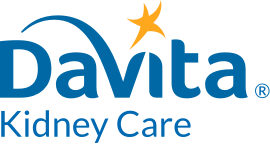
Nutrition for Kidney Health
You are what you eat. Never were truer words spoken when it comes to understanding the ins and outs of what someone with a kidney condition should be eating, and what they should be avoiding. Eating a diet that’s centered on your kidney health can have a huge impact on your day-to-day wellbeing. At Northeast Ohio Nephrology Associates, Inc., our team of nephrology doctors is here to help you better manage your kidney health, and nutrition is a key component of your treatment.
Managing Specific Minerals and Ingredients
There are some key nutrients that must be consumed in moderation by those who deal with kidney disease. Since a compromised kidney cannot process and filter very efficiently or effectively, one simple way to help prevent a condition from worsening is to avoid or very much limit the intake of key minerals and ingredients that can aggravate the kidneys or make their job harder. As is always the case with any medical condition, your specific dietary needs may vary based on the severity and type of kidney condition you have. Working with your nephrology doctors is the best way to know how to manage specific nutrients in your diet.
Sodium
Traditional forms of food preservation, like canning, curing, and pickling, typically rely on high levels of sodium for food safety and flavor. Canned foods of all types, prepared foods, cured meats, pickled foods, salty seasoning mixes and common shelf-stable snacks are all loaded with sodium. How can you avoid these items but still enjoy your diet? Thankfully there are lower sodium alternatives available, including fresh ingredients, herbs and spices, acidic ingredients like vinegars and citrus juice, and homemade meals that allow you to control sodium levels. There are many ways to build flavor in a dish that don’t involve high levels of sodium and that will provide your body with the nourishment it needs.
If you do decide to purchase low-sodium prepared or processed foods, always check for salt alternatives like potassium chloride, which should be avoided by anyone undergoing dialysis treatment.
Potassium
Potassium is naturally found in many commonly eaten fresh and processed fruit, vegetable and dairy foods. While potassium is vital to regulating various bodily systems and maintaining electrolyte levels and proper blood pH, too much or too little can cause unpleasant effects, like muscle cramps, irregular heartbeats, weakness and tiredness. Kidney patients need to manage potassium intake by avoiding high potassium foods and limiting their intake of naturally low potassium foods. Working with your nephrology doctors and a registered dietician will help you to better manage symptoms and find foods that work best for your unique condition.
Phosphorus
Phosphorus is a vital nutrient that helps to build strong bones and teeth. But if kidneys are struggling, phosphorus can quickly build up in the body, leading to very negative and even deadly consequences. That’s why understanding how phosphorus affects your body and knowing which foods are higher or lower in phosphorus is vital to maintaining an effective healthy kidney diet. As with any health condition, diet can play a big part in treatment, so it’s vital to learn how to read labels, looking not only for phosphorus levels but also for hidden forms of this mineral and keeping intake within a safe range. Phosphorus binders are one way to keep your levels in check.
Calcium
Calcium is vital for various bodily functions and systems and contributes to skeletal and nervous system health, among other things. That said, patients undergoing kidney treatment are more likely to suffer from too much calcium in the blood since their kidney function is somewhat compromised. This can lead to weakened bones and kidney stones. Lower calcium intake is recommended for those with a kidney condition.
Calcium is naturally present in many common foods, so a kidney patient will need to work with their nephrology doctors and dietician to select foods that are lower in calcium, while avoiding or limiting foods high in calcium. With the right foods in place in their diet, kidney patients can work to better manage their condition.
Iron
Iron is vital to the body and necessary for oxygen transport, while also aiding hormone and immune function, and generally supporting healthy growth and development. But for those with a kidney condition, iron levels can tend to be on the lower end of the spectrum, even veering into anemic levels. Unlike the other nutrients we’ve discussed, it is not typically recommended for kidney patients to limit iron. On the contrary, a dialysis patient or individual with a kidney condition will likely want to ensure that they are consuming iron rich foods and getting enough regular iron from their diet. However, because many of these foods rich in iron can also be high in potassium, calcium, and phosphorus, iron supplementation may be a more feasible option. A patient will need to work closely with their nephrology doctors and a registered dietician to ensure that they are eating the right foods to best support their treatment.
Safe Eating Practices
When cooking at home, the best way to ensure that you are eating a diet that will promote kidney health and support your treatment is to buy and prepare foods that are low in sodium, potassium, and phosphorus, while including sources of iron where possible. Instead of relying on ultra-processed and prepared foods, even if they claim to be low-sodium, learning to cook from-scratch meals and utilize herbs, spices, and acidic ingredients to build a more complex flavor profile in your meals can lead to satisfying and health-conscious results.
While at-home cooking is preferred, due to the amount of control you have over specific ingredients, there will always be times when you want or need to eat elsewhere. For those meals, it’s important to have a general idea of which foods are best eaten and avoided when eating outside the home. Our handy printout can give you some pointers, depending on the type of restaurant or cuisine you choose. By making informed decisions, you can enjoy eating out while still sticking to your kidney-friendly diet as closely as possible.
Work With The Nephrology Doctors At Akron Nephrology Associates
Diet is key when it comes to successfully managing and treating your kidney condition. And though you may need to say goodbye to some foods that are high in certain nutrients, this journey can be a way to discover new flavors and ingredients that you’ll come to love. With the help of our team of nephrology doctors, you can confidently tackle this challenge and learn to better manage your health.
At Northeast Ohio Nephrology Associates, we are committed to providing innovative solutions for maintaining and enhancing your renal health. It’s our mission to empower you to take control of your journey to optimal renal wellness. Contact us today to get started!
Our Affiliates
Contact Us
(*) - Required field








